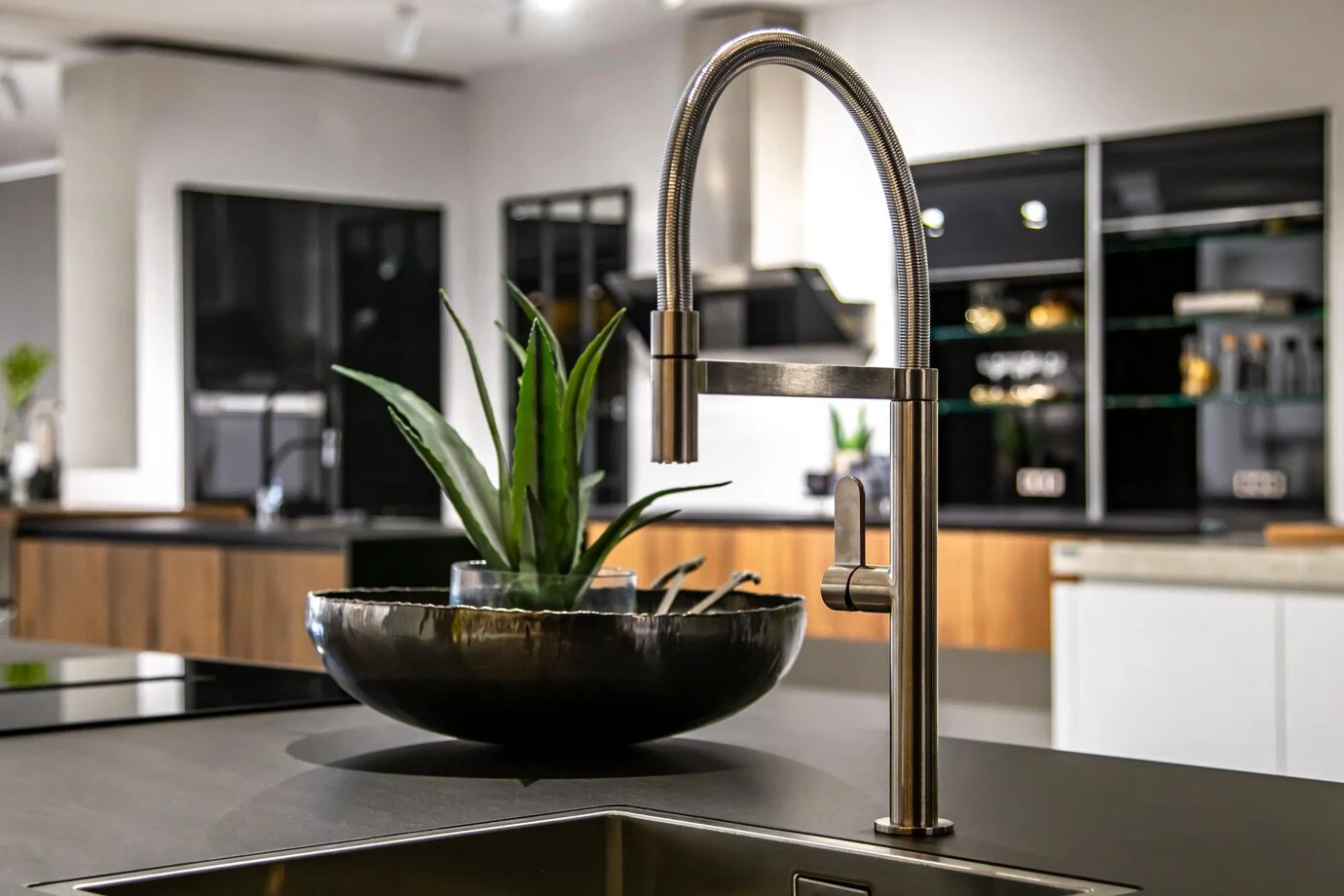Composite sinks are a popular choice in many modern kitchens due to their durability, attractive appearance, and resistance to stains. However, keeping them looking their best requires a little bit of know-how. This guide will walk you through everything you need to know about cleaning your composite sink effectively and safely.
Understanding Your Composite Sink
Before diving into the cleaning process, it’s important to understand what makes composite sinks unique. Composite sinks are typically made from a mixture of granite or quartz and resin, giving them a stone-like appearance with enhanced durability. These sinks are resistant to scratches and chips but can still suffer from stains and build-up if not properly maintained.
Everyday Cleaning: Keep It Simple
For everyday cleaning, the motto is “less is more.” Composite sinks are tough but can be scratched by abrasive materials and harsh chemicals. Here’s a simple routine to keep your sink clean daily:
- Use Warm Soapy Water: Mix a few drops of mild dish soap with warm water. Using a soft sponge or a microfiber cloth, gently wipe down the sink. This routine helps remove food particles and minor stains.
- Rinse Thoroughly: After cleaning, rinse the sink with warm water to remove any soap residue.
- Dry with a Soft Cloth: Use a soft cloth to dry the sink, which prevents water spots and mineral deposits.
Expert Tip: “For everyday cleaning of your composite sink, a gentle touch is key. Avoid harsh chemicals or abrasive scrubbers that can scratch the surface. Opt for warm soapy water and a soft sponge or microfiber cloth.” – Ruvanti, Kitchen Sink Manufacturer
Tackling Stubborn Stains
Despite your best efforts, stubborn stains can still occur. When they do, it’s time to bring out the big guns – but gentle ones!
Baking Soda Paste
Baking soda is a natural, non-abrasive cleaner that works wonders on tough stains.
- Create a Paste: Mix baking soda with a little water to form a thick paste.
- Apply and Scrub: Apply the paste to the stained area and gently scrub with a soft sponge or cloth.
- Rinse and Dry: Rinse thoroughly with warm water and dry the sink with a soft cloth.
Expert Tip: “For tougher stains or mineral deposits, baking soda is a natural and effective cleaning agent. Create a paste with water and gently scrub the stain. Rinse thoroughly and dry with a soft cloth.” – Abode Designs, Kitchenware Company
Vinegar Solution
For mineral deposits and water stains, vinegar is your go-to cleaner.
- Mix the Solution: Combine equal parts of white vinegar and water in a spray bottle.
- Spray and Wait: Spray the solution onto the affected areas and let it sit for a few minutes.
- Scrub and Rinse: Gently scrub with a soft sponge, then rinse and dry the sink.
Expert Tip: “A diluted vinegar solution (50% white vinegar, 50% water) can tackle stubborn water stains or limescale buildup. Spray the solution on the affected area, let it sit for a few minutes, then rinse and dry.” – Victoria Plum, Bathroom and Kitchen Retailer
Preventative Measures: The Best Defense
Preventing stains and build-up in the first place is always easier than dealing with them after they’ve occurred. Here are some preventative tips:
Wipe Up Spills Immediately
Spills are inevitable, but letting them sit can lead to stains. Wipe up any spills as soon as they happen.
Avoid Harsh Chemicals
Harsh chemicals can damage your composite sink. Stick to mild cleaners and natural solutions like baking soda and vinegar.
Expert Tip: “The best way to clean a composite sink is to prevent messes in the first place! Wipe up spills promptly and avoid harsh chemicals or dyes that can stain the surface.” – Home Depot, Home Improvement Retailer
Use a Sink Grid
A sink grid can protect the bottom of your sink from scratches and provide a buffer for dishes, preventing accidental damage.
Lessons from My Kitchen
I remember the first time I noticed a stain on my composite sink. Panic set in as I scrubbed furiously with a scouring pad, only to realize I was making things worse. After some research, I switched to a baking soda paste and a soft sponge. The stain came out easily, and my sink looked as good as new. Since then, I’ve adopted a gentler approach to cleaning, and my sink has remained pristine.
Understanding Your Material
Knowing the type of composite material your sink is made from can help you choose the right cleaning methods. Most composite sinks are made from granite or quartz mixed with resin, but there can be variations.
Expert Tip: “While most composite sinks are fairly durable, consult your manufacturer’s recommendations for specific cleaning instructions. Some materials might have slight variations in care requirements.” – IKEA, Home Furnishing Retailer
Developing a Routine
Regular maintenance is key to keeping your composite sink looking its best. Here’s a simple routine to follow:
- Daily Wipe-Down: After each use, wipe the sink with a damp cloth to remove any debris.
- Weekly Deep Clean: Once a week, give your sink a thorough clean with warm soapy water, followed by a baking soda scrub for any stubborn spots.
- Monthly Vinegar Treatment: Once a month, use the vinegar solution to tackle any mineral build-up or water stains.
Expert Tip: “Develop a regular cleaning routine for your composite sink. A quick wipe-down after each use with a damp cloth helps prevent grime build-up and keeps your sink looking beautiful for years to come.” – The Spruce, Home Improvement Website
Studies on Cleaning Composite Sinks
Research supports the use of gentle, natural cleaners for maintaining composite sinks. A study by the National Sanitation Foundation International compared various cleaning methods for different sink materials, finding that non-abrasive cleaners like baking soda and vinegar were effective and safe for composite sinks .
Another study explored how surface abrasion from harsh cleaners can damage the finish of composite sinks, reinforcing the importance of using gentle cleaning techniques . Additionally, research on the efficacy of vinegar solutions showed that they are effective in removing mineral deposits and stains from kitchen surfaces, including composite sinks .
Conclusion: A Sparkling Finish
Cleaning a composite sink doesn’t have to be a daunting task. With the right techniques and a little bit of care, you can keep your sink looking beautiful for years to come. Remember to be gentle, use natural cleaners like baking soda and vinegar, and develop a regular cleaning routine. By understanding the unique properties of your composite sink and following these tips, you’ll enjoy a sparkling, stain-free sink that enhances the beauty of your kitchen.










